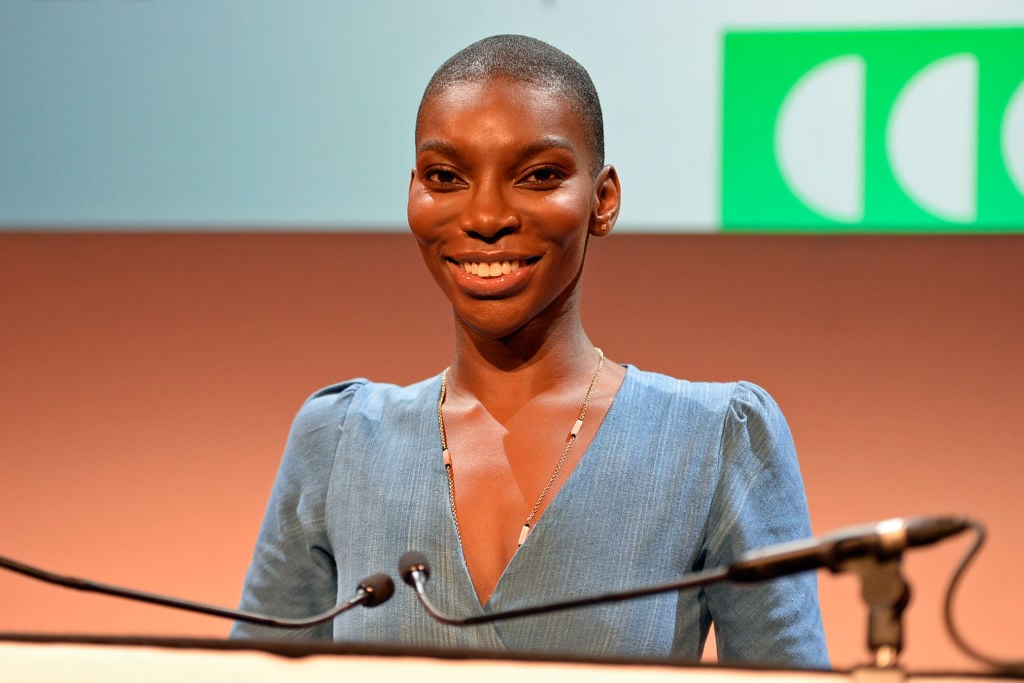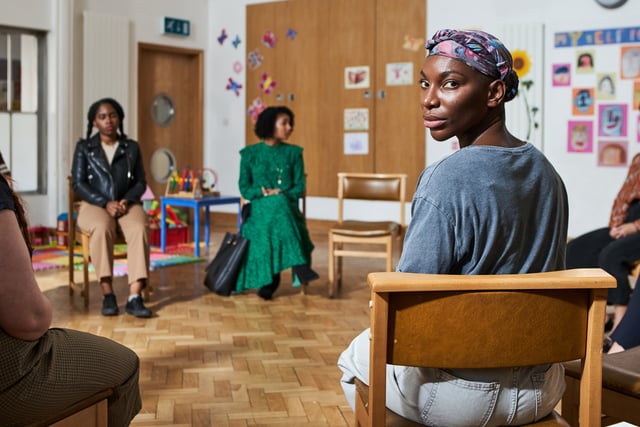Michaela Coel Wonders How Many ‘Potential Artists’ the TV Industry Has Lost to ‘Thoughtlessness’
Creator of the TV series I May Destroy You (and previously, Chewing Gum), Michaela Coel, has thought a lot about thoughtlessness. She worries that the TV industry has lost out on potentially great stories — simply because the people that run it are so thoughtless.
Michaela Coel recalls the painful experience that led to her HBO series, ‘I May Destroy You’

As Vulture reported, Coel’s 2018 MacTaggart Lecture — an annually given speech at the Edinburgh International Television Festival — was “a hand grenade into the British television industry.”
That’s because Coel didn’t use her time to do what most speakers in the past have done — many of whom were “the most powerful members of the British broadcasting networks.” Speakers from previous years at the festival “have included three Murdochs … Kevin Spacey, and a list of old white men too powerful to be recognizable,” Vulture explained.
With Coel’s 2018 talk, she would be “the first Black woman in the 42-year history of the event to give the lecture.”
Coel’s use of the platform was shocking to many in the audience. But the I May Destroy You creator wanted to call out past grievances.
She spoke about her sexual assault, which occurred in the midst of writing Chewing Gum Season 2 — and which also inspired her recent HBO series. As Coel recounted to the MacTaggart Lecture audience:
I was working overnight in the company’s offices; I had an episode due at 7am. I took a break and had a drink with a good friend who was nearby. I emerged into consciousness typing season two, many hours later. I was lucky. I had a flashback. It turned out I’d been sexually assaulted by strangers. The first people I called after the police, before my own family, were the producers.
In the 2018 MacTaggart Lecture, Coel pushed back on the TV industry and its inherent coolness to new writers
While Coel acknowledges the situation was tricky, she often felt a total lack of empathy from those producers.

“When there are police involved, and footage, of people carrying your sleeping writer into dangerous places, when cuts are found, when there’s blood … what is your job?” Coel wondered aloud during the Lecture.
As the Chewing Gum alum argued, their job shouldn’t be pushing ahead with something, when the artist in charge needs time and space.
“Writing felt as though I was cramped in a third of a trailer, a mind overcrowded by flashbacks,” she recalled in the speech. “I needed to push back the deadline, it was already tight.”
Being a relative “oustider” — or “misfit,” as she dubbed herself in the Lecture — to the TV industry, Coel wasn’t even aware of her options, or what she could ask for.
“I wasn’t sure how damaging it would be to the company so couldn’t ask,” she lamented. “I was lucky, someone was transparent with me: ‘They won’t offer you the break,’ a colleague said, ‘that’s not the way it is, you have to take it.'”
What will we lose, creatively, when we let thoughtlessness and lack of empathy run rampant, ‘Chewing Gum’ star Michaela Coel wonders
Like so many status quo items Coel pointed out in her 2018 talk, the way it currently is does not have to be the way it remains. And that new perspective that Coel is pushing for in the entertainment industry will help everyone. Because, without listening to or supporting new, inexperienced writers like Coel was, we miss out on everything they have to offer. As the I May Destroy You creator explained so eloquently:
How many other potential artists with stories we want and need, have we lost for the sake of financial profit, have we lost to thoughtless education systems, thoughtless nurturing, thoughtlessness? Why are we platforming misfits, heralding them as newly rich successes whilst they balance on creaking ladders with little chance of social mobility?
Coel wants more transparency — but a lot of that transformation has to come from within the system itself.
“I can’t help usher them into this house if there’s doors within it they can’t open,” she said.
How to get help: In the U.S., call the RAINN National Sexual Assault Telephone Hotline at 1-800-656-4673 to connect with a trained staff member from a sexual assault service provider in your area.


